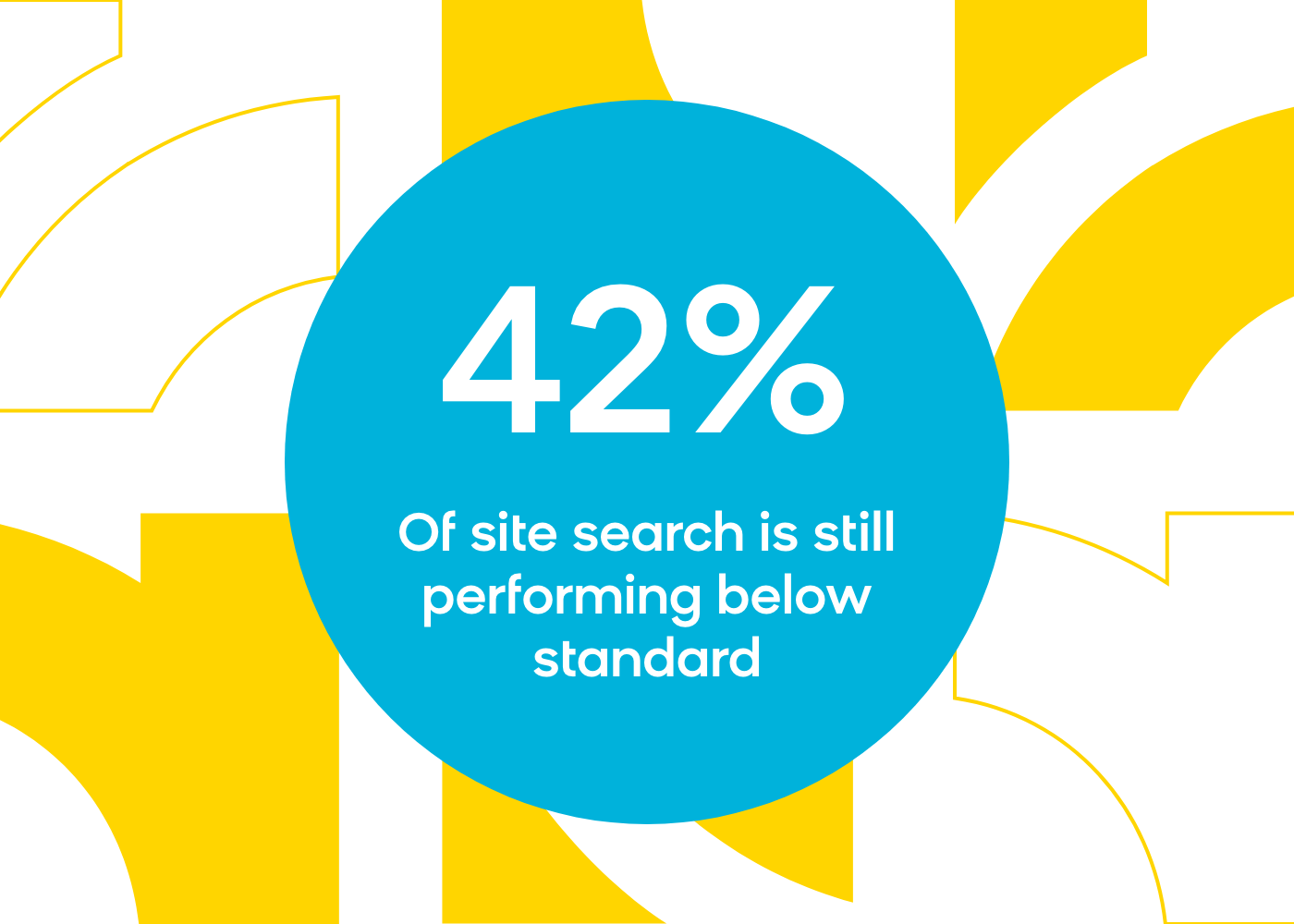The 3-Strike Philosophy of Ecommerce Site Search in the Eyes of B2B Buyers
By Jason Hein
06/23/2023

We hear it at in-person conferences. We see it on our LinkedIn feeds. Long-time practitioners like myself even feel it in our bones. We need to make B2B experiences as easy as B2C.
Unfortunately, the switch to digital has been anything but easy for B2B, primarily because of the way the B2B market typically handles customer relationships. Since B2B selling is built on interpersonal relationships, not transactional ones like B2C, the B2B market requires a deeper understanding of its products and buyers.
So, you’ll want to design your website to nurture relationships with prospects and customers — and site search is an essential part of this approach. Because site search on your ecommerce website can ultimately become an interpersonal relationship if it’s done right.
But one of the key things I’ve learned during my years in B2B is that customers have a “three-strike philosophy" with ecommerce site search functionality. Each strike represents an opportunity to demonstrate your expertise to buyers. And sites that "strike out" are much more likely to lose them. What this means is that your customers should be able to find what they need without hitting any of the major obstacles with your site search bar.
However, a recent report from Baymard Institute reviewed ecommerce sites and found that 42% of sites still had site search performing below standard. Almost half of ecommerce sites don’t even have average site search capabilities.

Before we delve into that topic, though, let’s discuss why AI factors into a customer’s evaluation of your site search experience.
Why B2B Distributors Need To Invest in AI-Powered Site Search
By utilizing AI in product discovery, B2B distributors can offer a personalized, relevant search experience that frees up sales representatives to focus more on building relationships, connecting with customers, and solving their buyer’s problems — and less on redundant tasks. This will increase customer satisfaction and encourage higher conversions and average order value (AOV).
But how does it work, exactly?
With AI, your team can gather valuable data insights that can be used to segment audiences, optimize how your products are displayed, and create useful content for your buyers. AI-powered site search also ensures scalability, as your product catalog and customer base inevitably grow. This is especially important in the B2B market with its high number of SKUs and diverse audiences.
Using the Three-Strike Philosophy To Evaluate Your Site Search
AI aside, there is a three-strike philosophy that makes search either “good” or “bad.” Here are three infractions that buyers will hold against your brand.
Not Recognizing the Query
The products we sell in B2B are often odd, unfamiliar, or completely unknown to the buyer. A buyer’s reason for choosing a product source ultimately boils down to a supplier’s expertise. Naturally, you have to build trust and assure them that you’re the brand that can solve their problem.
Historically, this trust has been built through the salesperson, who regularly demonstrates knowledge about the products that your buyers need. Nowadays, buyers expect your ecommerce website to solve the same problems. But does your website regularly demonstrate expertise so that your buyers consider the products they’re being shown as the "right” ones?

If it does, then your search bar recognizes all the words in the query. It should also support part number searches across all distributors, manufacturers, and third-party SKUs, in addition to numeric understanding (e.g., does your search recognize a 3-inch, 3”, or 3 in screw as the same thing?). A great product discovery experience complements your best salespeople, using AI to automate processes (not replace!).
Not Understanding the Buyer’s Intent
While poor search recall is a relevance problem, another common issue of ecommerce site search today is having little context behind the query. B2B buyers’ needs vary by the person and their role, the industry, and the product’s application.
With so many personas, products, and purchasing patterns across B2B, distributors need a personalization engine that can provide a segment-specific experience to their very different entities of buyers. Personalization isn’t about understanding a singular person in B2B; it’s about knowing a business. The “customer” could be a whole company, department, geographic location, single project, or job title. Because of this, B2B sellers can benefit from a “chunkier” segment-based approach.
By leveraging a personalization engine with powerful AI algorithms, B2B sites can go beyond 1:1 personalization and identify and target buyers based on their roles, industry preferences, or current needs. This fuels a buyer’s confidence that you know their business inside and out.
Not Presenting the Results That Convert
When it comes to product discovery, the search results you serve will determine your buyer’s first impression of your brand. Despite this, there are still many ecommerce site search bars out there that have a high signal-to-noise ratio. Sure, your customer might get some of the results they want, but there’s a bunch of background noise (and that’s putting it optimistically!).
Because they’re shopping in a work environment, B2B buyers are quicker to judge a website. If your website doesn't understand the products that buyers are looking for, they'll assume you don't understand and go elsewhere. Not only should your search bar recognize the query and personalize results based on buyer intent, but these results must also be shown in an order that matches the searchers' priorities for that day.
While these tactics might sound a little “merchandise-y,” this is the direction all ecommerce companies are headed in despite their market, industry, or audience. The way you present your products matters just as much as the products themselves.
Ready to Reconsider AI-Powered Ecommerce Search?
Wherever you might currently stand, B2B buyers have a three-strike philosophy when it comes to your -commerce website, regardless. It’s crucial to design your site search capabilities to meet their expectations. If you do, you can continue nurturing relationships with prospects and customers
Remember, these AI-powered ecommerce tools are to help, not replace — and they could be the difference between success or failure for your distribution business.
Found this useful? Subscribe to our newsletter or share it.






